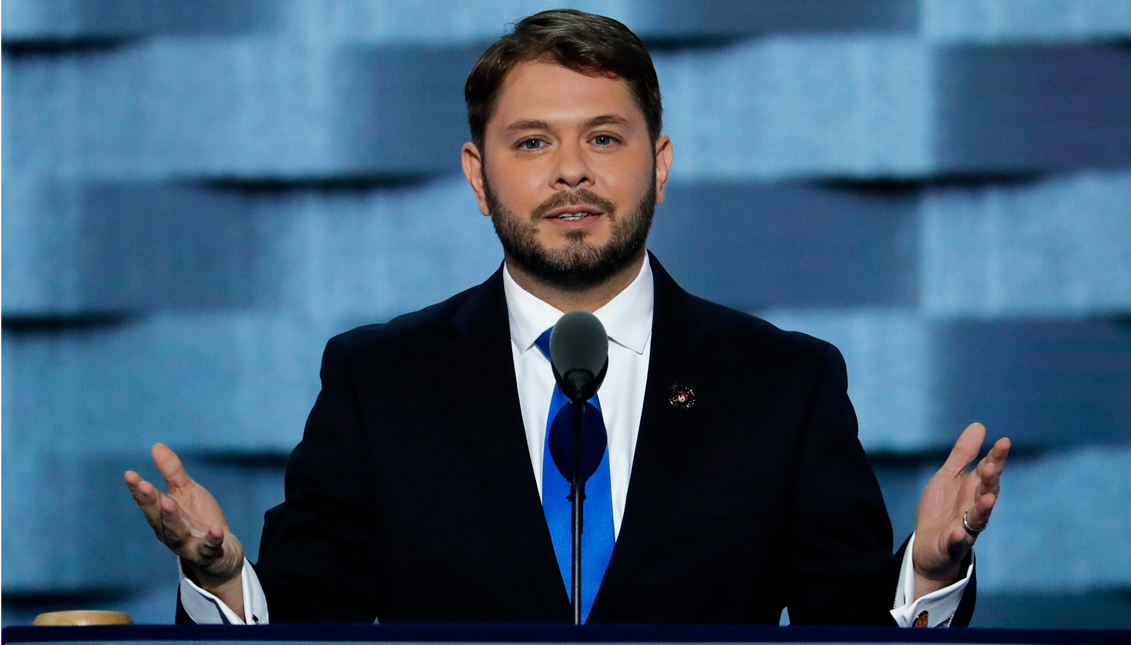
Rep. Ruben Gallego is new Bold PAC Chair as Cárdenas seeks DCCC Chair
The movement of both Latino leaders in the Democratic Party hierarchy has unearthed some major party divides.
Rep. Ruben Gallego (D-AZ) is the new Chair of CHC BOLD PAC, the campaign arm of the Hispanic Caucus.
Gallego is a three-term Arizona Congressman, Marine Corps combat veteran, and son of a Colombian mother and Mexican father. He was also the first in his family to graduate from college.
Prior to getting elected to Congress, Gallego served in the Arizona House of Representatives from 2010 to 2014.
“Ruben Gallego has been an ardent voice for service members and their families, a champion for immigrant communities in Arizona and across the country, and an advocate for tribal communities," BOLD PAC wrote in a statement.
BOLD PAC’s outgoing chair, Rep. Tony Cárdenas (D-CA) is looking to chair the Democratic Congressional Campaign Committee (DCCC). He issued his own statement on Gallego’s appointment, saying he understands the importance of supporting Latinx congressional candidates early in their bids for office.
“He knows that if we want to see our communities and experiences represented in the halls of Congress, if we want to have folks at the decision-making table who reflect the diversity of our nation — we need to play an active role in electing them. I’m confident Ruben will build on the great work of our predecessors to expand our Hispanic Caucus and bring new Latino leaders to Congress,” Cárdenas wrote.
After DCCC Chair Rep. Cheri. Bustos (D- IL) announced she would not run for another term, several reps. announced their candidacy. Now just days before the election, only Cárdenas and Rep. Sean Patrick Maloney (D-NY) remain in the race.
Cárdenas had previously been running for the fourth-ranking post in the House — the assistant speaker position — which had been vacated by now-Senator Ben Ray Luján (D-NM). Rep. Katherine Clark (D-MA) later defeated Rep. David Cicilline (D-RI) to attain the spot.
Whoever wins will likely have a two-year timeline, as Democrats historically lose House seats in the midterms.
This is especially ardent coming out of an election with unexpected losses. Top leaders had previously forecast that Democrats would expand their majority. But several seat losses have only increased tensions that further risk party unity.
Democrats came into the 2020 election with a 232-197 majority over the Republican party, with one Libertarian and several open seats. The current breakdown following the 2020 election stands at 222-205.
RELATED CONTENT
In a letter making the case for serving as DCCC chair, Cardenas remarked on "Black and Brown communities showing up at the polls in states like Arizona, Michigan, Nevada, Georgia, Wisconsin, and Pennsylvania,” though he expressed “immense disappointments” and an “unshakeable sense of loss and frustration,” at the loss of colleagues who will not be returning to Congress in 2021.
Cárdenas is vying for the chair at a turbulent time, but his possible spot in a leadership position demonstrates an acknowledgment among Democrats that they can’t afford for things to remain the same. The DCCC, and the Democratic Party overall have shown it needs to better its understanding of Latinx and Hispanic voters, and that there needs to be a strategy for fostering the voting bloc's support. Analyses over Election Week conclude it was taken for granted.
In a recent interview, Cárdenas told Axios on HBO that he wants to see the DCCC change "overnight,” saying that Democrats need to be more "culturally competent" with Latino voters.
His opponent, Maloney, voices a similar strategy — not only for Latinx outreach, but for elevating already-present representatives into more visible roles. He has said he wants to “elevate Latinas,” specifically, at the DCCC. Reps like Veronica Escobar (D-TX) and Linda Sánchez (D-CA), “and improve our cultural competence as we look to communicate with many different Latino communities around the country.”
These acknowlegements, both in regards to the impact of Black and Latinx voters in the election, as well as the inclusive strategies are promising. But again, there is pushback from progressives.
For instance, Rep. Alexandria Ocasio-Cortez (D-NY) encouraged small donors to pause their donations to the DCCC and started her own PAC in Jan. 2020 to support progressive challengers. The move came after the DCCC’s new vendor policy became official. It’s a rule barring Democratic consulants from working with primary challengers if they wat to have business with the national campaign arm.
"We are pushing the envelope in DC by rewarding those who reject lobbyist money, fight for working families,& welcome newcomers,” Rep. Ocasio-Cortez wrote at the time. The website for Courage to Change, her new PAC, also called out the DCCC. “When community leaders, activists and working-class candidates try to run for office, organizations like the DCCC discourage them," it wrote.
The rumors are true. Today we’re announcing the Courage to Change PAC - and we need your help.
— Alexandria Ocasio-Cortez (@AOC) January 11, 2020
We are pushing the envelope in DC by rewarding those who reject lobbyist money, fight for working families,& welcome newcomers.
Change takes courage. Let’s go: https://t.co/F01JmYaR7w
However, just days ago, Maloney vowed to end the vendor ban should he become Chair, saying it separated the party from “creative” and “diverse” people working in politics with the crucial backgrounds of digital and social media — both essential for campaigning especially in 2020.
Elections for the DCCC chair will be held at the end of this week. The winner, like newly-elected Joe Biden, will find a changed landscape within the Democratic party — one of a progressive wing led by leaders pushing bold candidates, and resisting moderates.











LEAVE A COMMENT:
Join the discussion! Leave a comment.